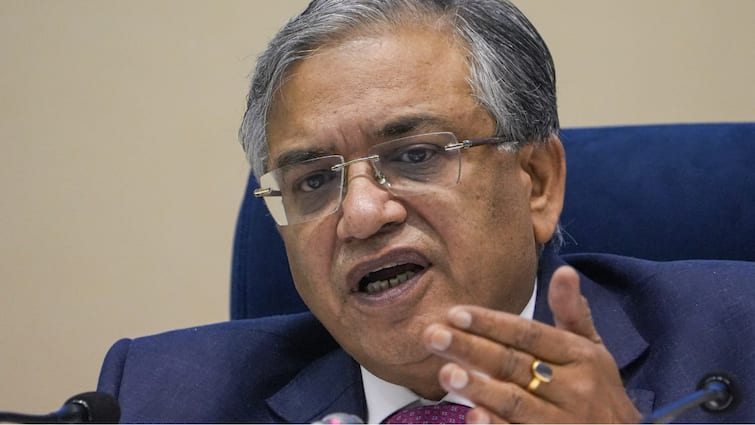As the Election Commission launched the second phase of its Special Intensive Revision (SIR) in 12 states starting October 28, the nationwide drive marks a significant departure from the version first implemented in Bihar earlier this year.
The new SIR reflects lessons learned and politicial aspects disocvered during the exercise in Bihar and now has softer tone on citizenship checks, redesigned forms, and wider inclusion efforts.
Inclusion, Not Verification
The most striking change begins right at the start in the enumeration phase. In Bihar, this stage caused friction and anxiety among voters registered after 2003, the year of the state’s last intensive revision. Electors were asked to prove their age and citizenship through official documents to remain on the rolls, triggering confusion across segments.
The nationwide SIR, on the other hand, focuses on inclusion rather than verification. Enumerators have been directed to locate electors using previous entries, which includes their own or those of parents or relatives, from earlier SIR rolls. At this initial stage, no supporting documents are required, only basic details to confirm continuity in enrollment.
Redesigned Forms And Expanded Access
To reinforce that approach, the enumeration form itself has been restructured. Two new columns now allow individuals to trace their connection to the last revised roll. This link-based verification was initially introduced in Bihar, though belatedly, after officers reported that obtaining one of the 11 accepted documents was proving difficult for many voters.
The Election Commission has now built this flexibility into the first phase itself. Moreover, it has gone a step further by allowing electors to link themselves to the last revised roll of any state and not just their current place of residence. Booth Level Officers (BLOs) will now have access to records from all states’ intensive revisions, unlike their counterparts in Bihar, who could only check within their own state’s roll.
Easier Criteria For Migrants
This change is particularly significant for migrant voters. During Bihar’s SIR, documents could only be sourced from the state’s 2003 rolls. Under the nationwide SIR, however, a voter currently in a state can remain enrolled there if they, their parent, or a relative were listed in Bengal’s 2002 revision roll. Anyone featured in a state’s last intensive update will be presumed eligible for inclusion elsewhere.
Documentation Requirements Eased
Another major shift concerns document submission. Only those absent from any previous state roll during the last SIR will now need to provide paperwork to prove eligibility. In Bihar, by contrast, most post-2003 voters had to submit proof.
In the new system, notices will be issued to all voters without prior entries, asking them to confirm eligibility during the claims-and-objections phase. Earlier, notices went out only to those whose inclusion was contested or who lacked required documents.
Softer Approach In Citizenship Checks
The poll body’s earlier insistence on verifying citizenship as part of eligibility has been moderated and the tone too has softened.
While citizenship remains a key criterion, it is no longer positioned as a litmus test. Aadhaar, added as the 12th identity document after the Supreme Court’s intervention during Bihar’s SIR, continues to be accepted. Voters will also get an option to scan so they can submit soft copies of papers from their homes.
New Voters Get A Head Start
New applicants, including first-time voters who recently turned 18, can now submit Form 6, the Election Commission’s registration document, along with the SIR declaration form during the enumeration phase itself. During Bihar’s exercise, these forms were processed only later, during claims and objections period.
Political Involvement From The Start
The Election Commission has taken a consultative turn. Unlike the Bihar SIR, which was rolled out abruptly and caught political parties off-guard, this second phase begins with meetings between Chief Electoral Officers (CEOs) and party representatives in every participating state. Officials have been instructed to explain the process thoroughly and treat political stakeholders as partners from the outset.
By recasting what was once a source of uncertainty into a more inclusive and coordinated exercise, the Election Commission’s nationwide SIR aims to strengthen confidence in the electoral process, especially as poll-bound Bihar watches closely from the sidelines.
The Election Commission (EC) on Monday announced that it will conduct phase two of SIR of electoral rolls in 12 states and Union territories between November and February. These include the Andaman and Nicobar Islands, Lakshadweep, Chhattisgarh, Goa, Gujarat, Kerala, Madhya Pradesh, Puducherry, Rajasthan, Tamil Nadu, Uttar Pradesh, and West Bengal.
Meanwhile, the Chief Election Commissioner, while announcing the dates for the second phase of SIR and said elections are scheduled for Assam next year. However, there will be no SIR there since the state has different citizenship rules.

